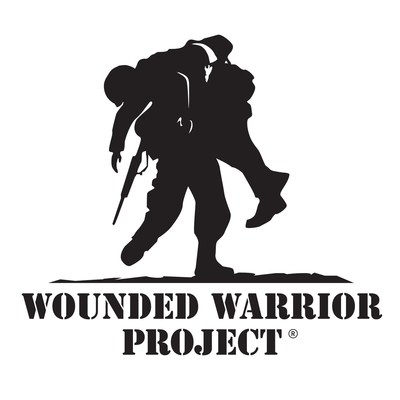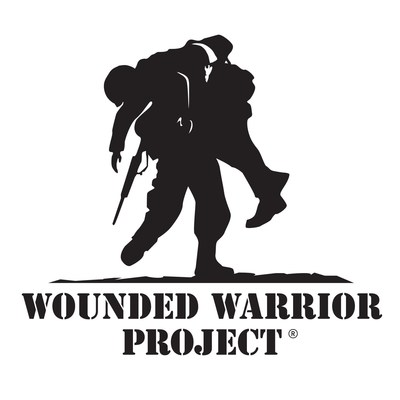Impact of Wounded Warrior Project Advocacy Efforts Crosses $2.5 Billion
JACKSONVILLE, Fla., Feb. 24, 2016 /PRNewswire-USNewswire/ -- Since inception, Wounded Warrior Project® (WWP) has taken advocacy for today's generation of injured veterans seriously. Today, the organization's advocacy efforts continue to be paying off for wounded veterans in a major way as the financial impact of two important laws spearheaded by WWP is now beyond $2.6 billion.

The Servicemembers' Group Life Insurance Traumatic Injury Protection (TSGLI) provides automatic traumatic injury coverage to all service members under the Servicemembers' Group Life Insurance program. TSGLI bridges the gap between when a veteran is seriously injured, and when Department of Veterans Affairs (VA) disability payments begin.
"Two wounded veterans inspired the bill," said Jeremy Chwat, chief strategy officer at WWP. "They came to us at Walter Reed Medical Center and explained how their family finances were destroyed because of their injuries and associated costs. Medical bills, expenses of the family traveling to be near them, it all added up."
"The sentiment from many became – their families would have been better off if they had died on the battlefield. We knew something had to be done. These men and women served and sacrificed, and they should not be left without any financial help, rapidly increasing medical expenses and the horrible feeling that their families would be in a better position without them."
TSGLI legislation has paid out more than $905 million between the retroactive start date of October 7, 2001, and November 30, 2015.
Meanwhile, another WWP spearheaded initiative, the Caregivers and Veterans Omnibus Health Services Act of 2010 has led to $1.7 billion in benefits and services for many caregivers, including:
- A monthly stipend ($954 million in stipends)
- Travel expenses
- Health care coverage
- Expanded training on caring for veterans
- Counseling and support groups
Emily Mather stepped away from her career, to help care for her husband, Michael. He suffered a gunshot wound to the face in 2008.
"The caregiver act helps me be more present in his care," Emily said. "I am listed on the paperwork as his caregiver now, so it makes it easier to facilitate everything."
In both TSGLI and the caregiver act, WWP learned of the need and started creating legislation that would help today's generation of wounded service members.
"For families of the most severely injured veterans, they had a real issue," Chwat said. "They had no income, their warriors' disability benefits had not started yet, and they were rapidly depleting their savings."
For the Caregivers and Veterans Omnibus Health Services Act, WWP identified the issue during caregiver summits – events WWP hosts to bring caregivers of wounded veterans to one place to share their successes, challenges and develop a support structure for an often thankless task.
"These spouses, parents or other family members sacrifice their lives to ensure their loved ones had the highest quality of life, despite a traumatic injury," Chwat said.
With the help of US Senator Patty Murray (D-Washington) and Senator Richard Burr (R- North Carolina), the bill passed the Senate Veterans Committee, then the full Congress and worked its way to President Barack Obama's desk.
TSGLI moved into law even quicker.
WWP took three wounded veterans on two lobbying trips to tout a rider written for the already existing Servicemembers Group Life Insurance while also bringing the issue to the VA. In just more than a month, TSGLI took shape and reached the President.
WWP continues to advocate for issues of importance to the veterans it serves and advocacy efforts in 2016 will help to save wounded veterans money by closing a loophole in TRICARE/Medicare coverage that costs some injured service members more than a thousand dollars each year. Additionally, some wounded veterans are facing challenges in their desires to start a family. Injuries sustained in service complicate matters. WWP is pushing VA to cover fertilization treatments for veterans who fall into this category; treatment already offered to active-duty service members by the Department of Defense.
WWP has invested in the long-term care for some of the nation's most seriously injured veterans. These are men and women who have suffered moderate-to-severe brain injury, spinal cord injury, or other neurological conditions. Wounded veterans' cognitive or physical challenges limit their opportunities to access resources in their communities. Through the Independence Program and Long-Term Support Trust, WWP provides individual plans for injured veterans that allow them to live life on their terms, and ensure care will be there, for life.
About Wounded Warrior Project
The mission of Wounded Warrior Project® (WWP) is to honor and empower Wounded Warriors. WWP's purpose is to raise awareness and to enlist the public's aid for the needs of injured service members, to help injured servicemen and women aid and assist each other, and to provide unique, direct programs and services to meet their needs. WWP is a national, nonpartisan organization headquartered in Jacksonville, Florida. To get involved and learn more, visit woundedwarriorproject.org.
SOURCE Wounded Warrior Project
